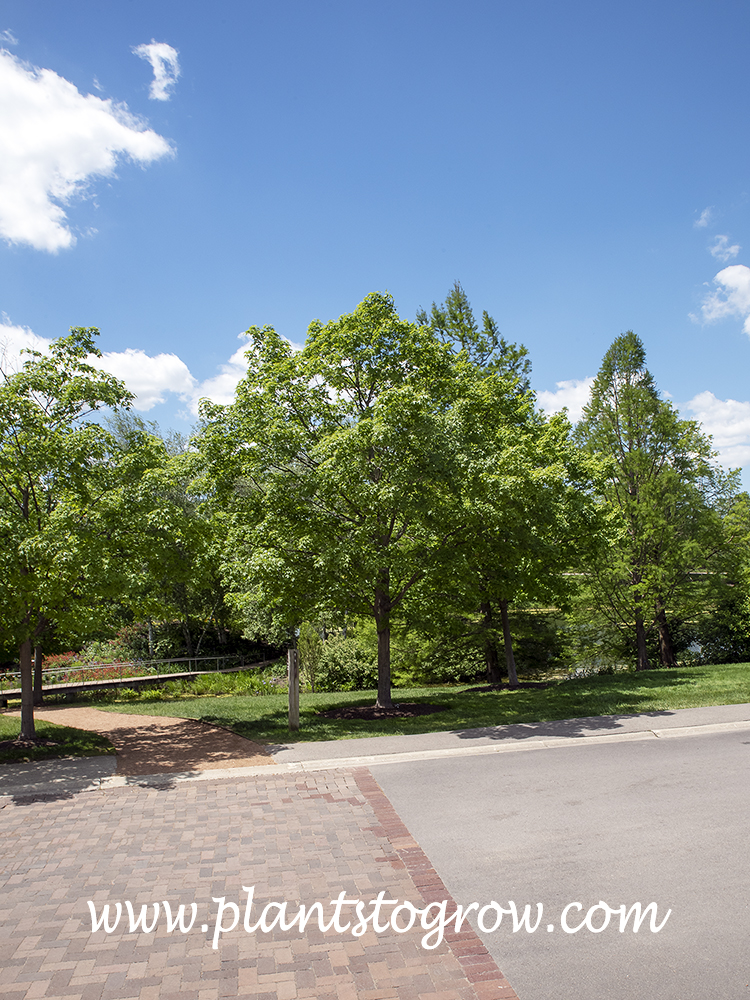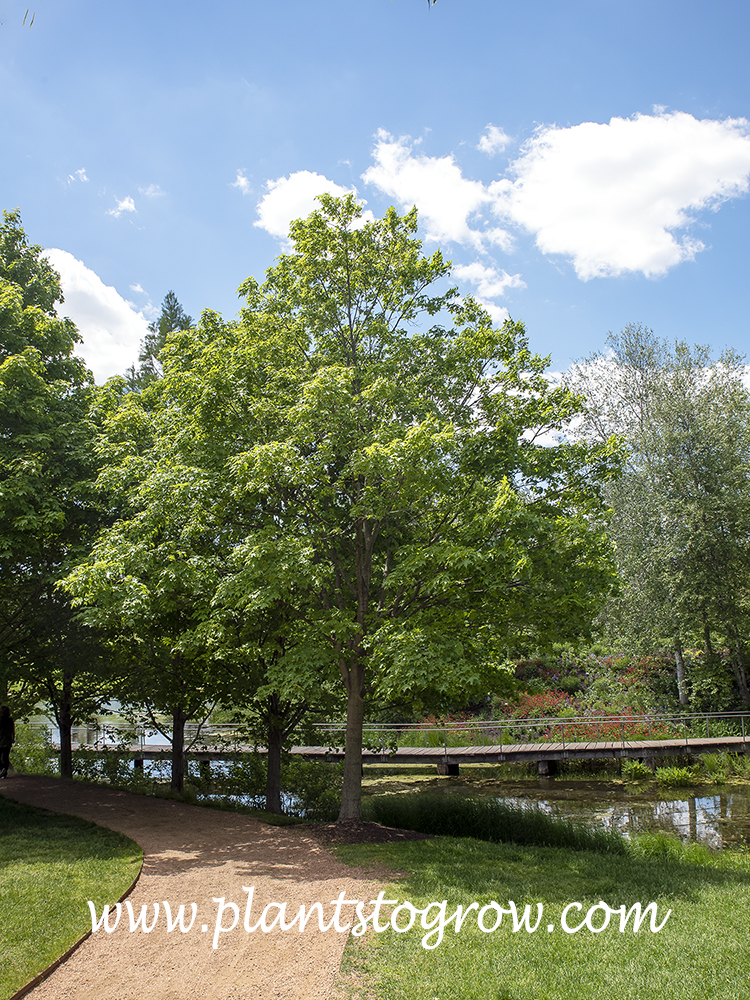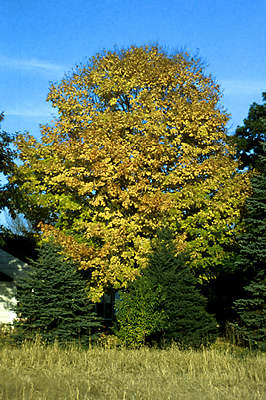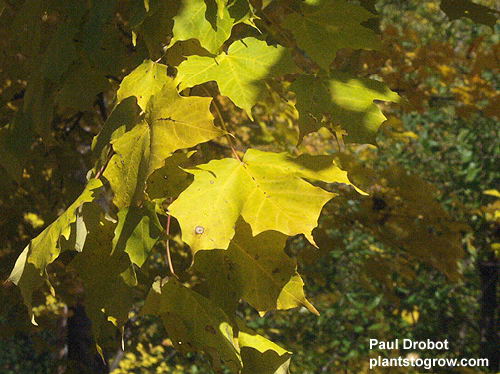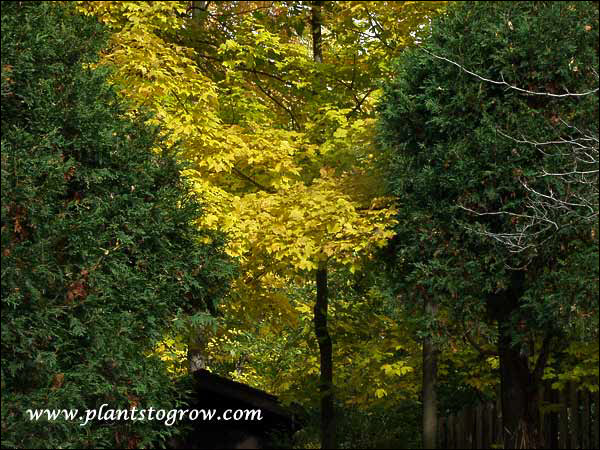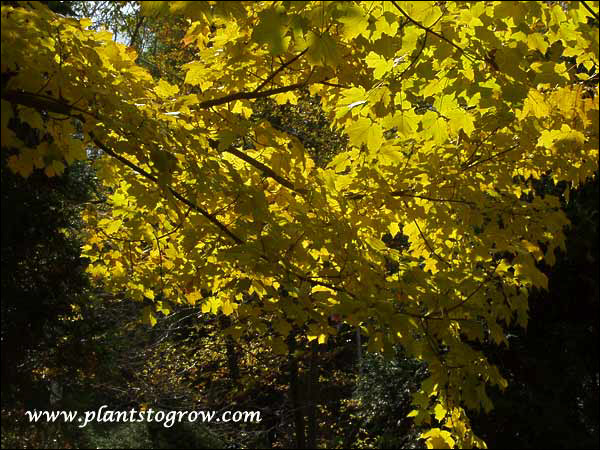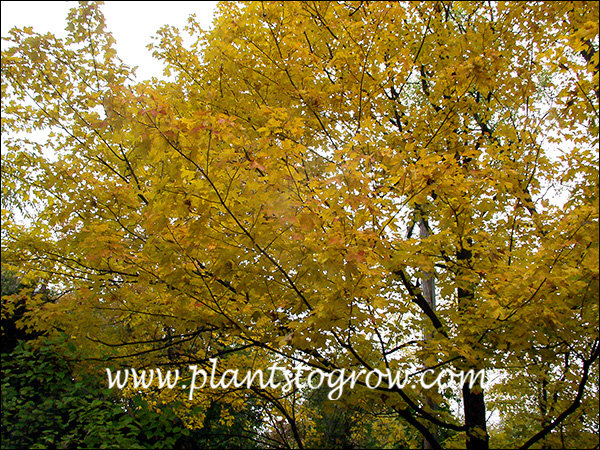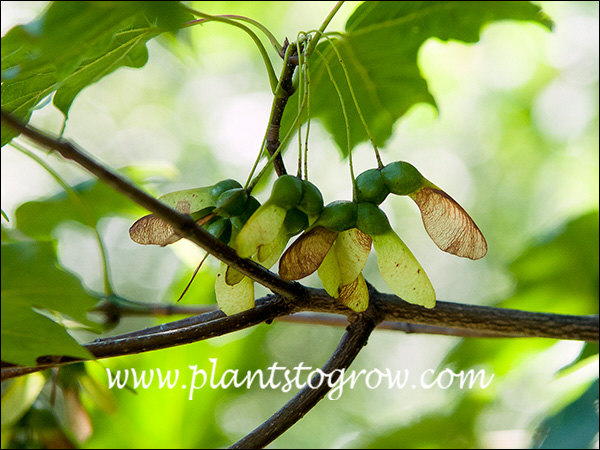| Description | Sugar Maple (Acer saccharum) is a large native tree with excellent fall color. It is best known as the primary source of maple syrup. |
|---|---|
| Plant Type | Trees Deciduous, Site author's observations |
| Hardiness Zone | 3 |
| Sunlight | As a seedling or sapling this tree can tolerate very deep shade. A mature tree grows best in full sun. |
| Moisture | average |
| Soil & Site | Grows best in well-drained, moist, fertile soil. This type of soil is not typical of new sub-divisions. |
| Flowers | not ornamental |
| Fruit | Winged fruit called samars. |
| Leaves | The Sugar Maple produces dense foliage, creating intense shade and making it hard to establish grass and other plants underneath the crown. The leaves are green during the growing season, and fall color varies from yellow to red and orange. |
| Dimensions | A slow growing, very large tree. In the landscape it may be less than in native sites but still the size is in excess of 60 feet in height and 30 feet in spread. |
| Propagation | seeds. |
| Native Site | A native tree to many parts of the United States and Canada. |
| Misc Facts | . |
| Author's Notes | It is not a good tree for polluted or hot, dry areas. If it likes the site, it grows extremely large. There are cultivars that are smaller than the species. This tree is the primary source for the production of maple sugar. One way to tell this Maple from the very similar Norway Maple is to look at the samaras (winged fruit). Sugar Maples will be closed tight, forming a U-shape, whereas Norway will be widespread. |
| Notes & Reference | #01-Manual of Woody Landscape Plants (Michael Dirr) |

Cart
